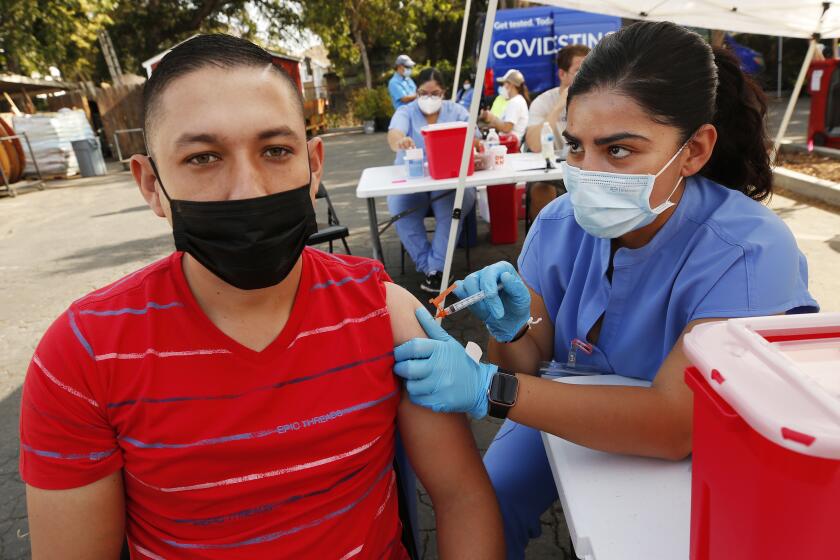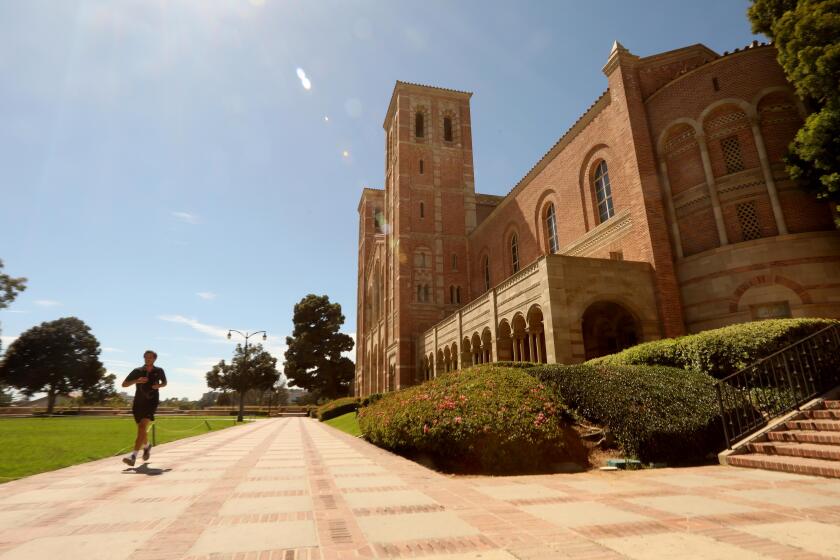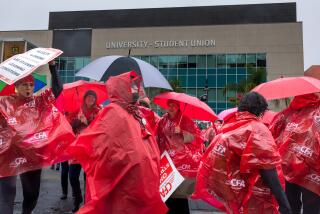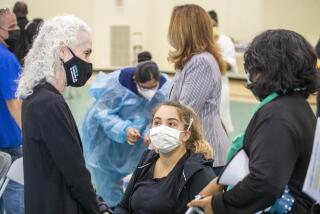CSU to require COVID-19 vaccinations for students, faculty, staff on campus this fall
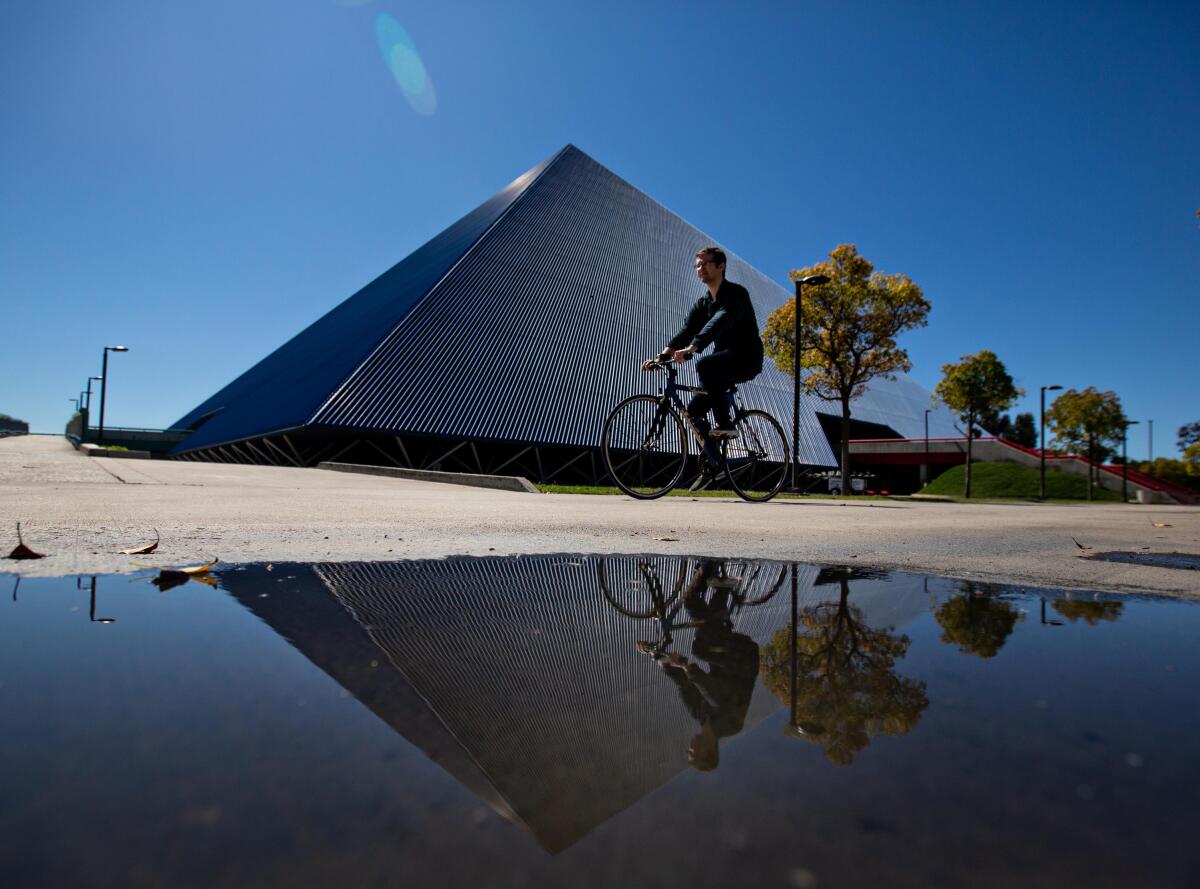
- Share via
California State University — the nation’s largest four-year public university system — will require students, faculty and staff to be vaccinated against COVID-19 before returning to campus for the fall semester. Medical and religious exemptions will be allowed, with unvaccinated students having to undergo frequent coronavirus testing.
The decision announced Tuesday was prompted by the ongoing rise in the Delta variant throughout California. It came one day after state officials announced that government and healthcare workers would be required to show proof of vaccination, and more than a week after the University of California mandated vaccines for students and employees.
With cases and hospitalizations spiking, the focus is increasingly on ramping up vaccinations to protect as many people as possible against infection and illness.
Cal State Chancellor Joseph I. Castro previously said that any vaccination requirement would wait until official federal approval. But plans shifted because the Food and Drug Administration has not indicated whether it will grant approval by the start of the next semester.
“The FDA has not yet given full approval and we’re getting closer to the beginning of the academic term. Just as importantly, the increasing spread of the highly infectious Delta variant really prompted a change in view,” he said in an interview with The Times. “We are making sure that at each campus, we will have aggressive efforts to vaccinate our students, faculty and staff ... Many of our campuses had clinics on site and others entered into partnerships with other organizations. I anticipate we will continue to enhance those efforts.”
The decision to implement a vaccination requirement was unanimous among all 23 university presidents, said Castro, who also consulted with faculty union, academic senate and California State Student Assn. leaders.
The reaction of students has been largely positive, according to Cal State Student Assn. President Isaac Alferos. He said the update aligns with the organization’s goals of ensuring the health and safety of the student body.
“I have heard some concerns that students have had about getting the vaccine. Honestly, I think that’s going to be expected and is representative of how much work we’re going to do this next year to help students understand how helpful the vaccine can be,” Alferos, 21, said. “This new provision allows some way for campuses to stay in control over how this vaccine mandate is implemented.”
Cal State’s process will largely rely on trust, spokesperson Mike Uhlenkamp said. Students would have to certify that they are fully vaccinated or seeking an exemption and attest that their answers are accurate and truthful. A Cal State campus could independently request proof of vaccination as a next step in the initial certification process.
Logistics for the policy are still being hashed out, and Cal State is still in discussion with faculty labor union groups.
It’s unclear what type of disciplinary action could be taken against someone who did not adhere to the requirement, but at this point the policy includes a warning that any student or employee who does not provide certification “may be denied access to Campus/Programs.”
All certifications must be completed no later than Sept. 30, but the deadline may be sooner for some campuses because not all 23 universities have the same semester start date.
The number of unvaccinated young adults has been a growing concern throughout the country. Roughly 11.9 million adults ages 18 to 24 have been fully vaccinated within the U.S., according to the Centers for Disease Control and Prevention, accounting for about 43% of that population group. In California, the state public health department said that 99% of COVID-19 infections from January to mid-July have occurred among unvaccinated residents.
The UC requirement underscores the uncertainty over campus health protocols as the Delta variant spreads.
It’s unclear how many students across the Cal State system have already been vaccinated, but campuses in regions with lower vaccine rates are expected to have similar low rates. Cal State leaders are currently discussing vaccine incentives such as financial aid and bookstore vouchers, Castro said, as part of the ongoing efforts to urge students to get inoculated.
Alferos, an incoming senior at Cal State Fullerton, believes that incentive programs could be beneficial. He will also advocate for Cal State to address equity issues related to the vaccine as distrust continues to linger among some communities of color.
Although Cal State will offer more online class options than it did before the pandemic, it may be difficult for a student to take a fully virtual course load. Castro suggests that any student who wishes to remain unvaccinated, without exemption, consider virtual options. His hope, however, is that most students will opt for the vaccine.
“I very much hope that all of our students, faculty and staff get vaccinated,” he said.
More to Read
Sign up for Essential California
The most important California stories and recommendations in your inbox every morning.
You may occasionally receive promotional content from the Los Angeles Times.
